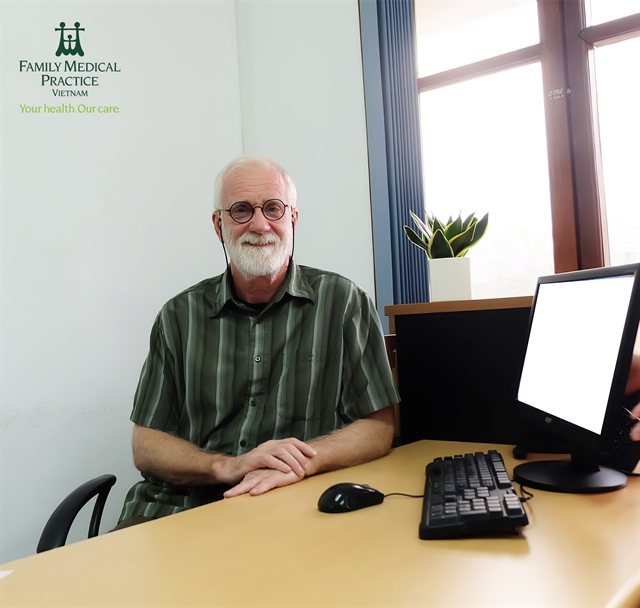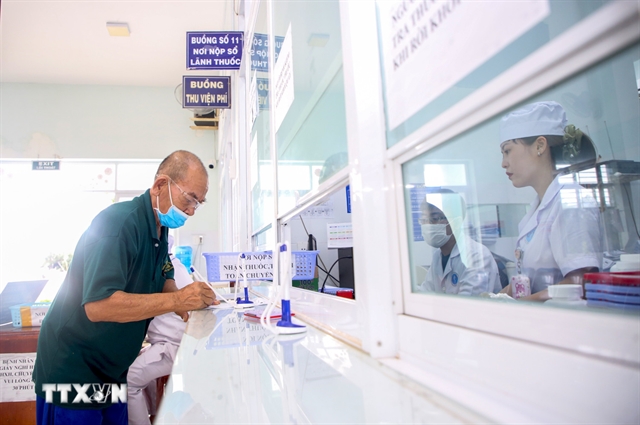 Life & Style
Life & Style

Depression is a psychological condition that about 50 per cent of us experience at some point in our lives. Teens are one age group who are likely to experience serious depression.

|
by Douglas Holwerda*
Depression is a psychological condition that about half of us experience at some point in our lives. Teens are one age group who are likely to experience serious depression.
Depression is the name for a set of emotions and the way they affect our thoughts, our outlook on life, our motivation, our ability to concentrate, the way we feel about ourselves and life itself. Sometimes depression has been described as the heaviness of unhappiness. Without fully realising it, we might be feeling a combination of emotions (like sadness, guilt, anger, fear and frustration), but to us it just feels like a low mood. When we feel depressed it is the low mood that dominates our inner experience so that the desirable emotions like joy, excitement, fun and happiness seem to disappear.
Teenagers experience depression a little differently than adults do. Generally speaking, teens have more mood swings and feel things more intensely than adults do. They also have less practice regulating their mood. Teens are also in an earlier stage of knowing themselves and their identity. Social acceptance and the fear of rejection makes teens vulnerable to low mood when social pressures are highest.
Depression often becomes a downward spiral. When we feel depressed, we start to care less about the things we are doing, like schoolwork, seeing friends or what we do for fun. When we lose motivation, we do less, which produces guilt or a sense of failure, which then makes us feel worse. It produces negative self-talk, ways we reinforce negative ideas we have about ourselves . It is not uncommon to find ourselves feeling quite alone, not caring about things we used to like doing. It might feel like everything takes more effort, like walking up hill while tired. It can start to generate thoughts, like, “What is the point?”.
Depression usually causes relational problems with our friends and family, because people expect us to be different. Our feelings are changing what we say and do. Some people understand and are empathetic, but some people do not understand and judge us for being lazy or having the wrong attitude. All these things can give us the feeling that things are getting worse and worse and that we are trapped, with no way out. Family and friends often do not know what is most helpful when we are depressed.
Feeling lousy (depressed) is not fun, it is tiring and frustrating. We want to feel better and we don’t seem to know what to do to feel better, or we think we know what to do but cannot get ourselves to do it. Sometimes the answer seems so obvious to us or our parents and teachers, yet, for some reason we just cannot change…it feels too hard. We start to see through the lens of depression, which tells us that life is a negative experience, that people treat one another badly, that we are living a meaningless existence. Things don’t make sense and effort to do something feels like a waste of time.
People can sink very low inside the cloud of depression to the point where they feel hopeless and helpless. They can sometimes see no good reason to keep living, especially with the pain of living, and they see nothing that will make it change, nothing they can do to feel better. Death might feel like a better option than life, a way to escape the feelings and to be less of a burden on others. It seems to make sense when we are deeply depressed and have lost touch with the joys and pleasures of life, the feelings of love and connection.
Depression is not something we choose, it happens to us. It can come when we are young or old. It can come for no apparent reason, although sometimes there are reasons. It can last a long time or pass through like a temporary visitor. Some people talk about a sudden drop in mood, going from everything being fine to feeling as if you're in a dark hole, alone and scared. Teens do have more depression and mood shifts than older people and it leads to suicide more than most other age groups.
What we can do?
The first thing we can do is to see depression as a real thing, a set of emotions that affect how we think, feel, function and relate to others and the world we are in. Even though we cannot see it physically we can feel it and see how it changes our behaviour and outlook on life. Often, in the beginning we blame ourselves or our parents blame us, because we or they believe we aren't trying hard enough or that the solution is inside our control and we just need to be stronger. Many depressed people get accused of being lazy, when they are feeling overwhelmed by the normal demands of life. Sometimes parents ask what their children have to be depressed about, not realising that it is not a choice. So, shifting our thinking so we recognise depression, accept it as real and find out what we can do about it to be helpful, is a good beginning.
As a psychotherapist, I believe our feelings are trying to tell us something. It means when we are depressed, it is time to slow down long enough to reflect on ourselves. It is helpful to ask what are these feelings and why are they so strong? What are they connected to, what is causing them? What might we be avoiding? What has happened in the past that might need to be attended to? What doesn’t make sense about the life we are living? And what does make sense? These questions can be addressed with the help of a psychotherapist or through talks with friends and family. We can also use methods of self-exploration like journals and creative forms of expression to know ourselves better and to move the emotions through us.
We also know that when our emotions become intense in a way that affects our thinking, we often neglect our bodies and lose touch with our “senses”. So, shifting toward being active in our bodies also shifts the way we feel and the way we see things. There are many things that a depressed person can learn to do to feel better, often with the help of some support and guidance.
There is much written about depression and mental health online. Psychotherapy is also the best way for a person to work through the depression. Family Medical Practice Vietnam

|
*Douglas Holwerda is an American mental health counselor working at Family Medical Practice Hanoi. He works with teens, adults and couples on resolving issues like anger, anxiety (including panic attacks and OCD), depression (including suicidality), relationship and communication problems, expat adjustment, loss and grief, mid-life changes, and meaning of life questions. He also works with those seeking personal growth and helps with other mental health concerns.
For more information or medical advice, please contact
Family Medical Practice Hanoi at: at 298 I Kim Mã Street, Ba Đình. Tel: (024) 3843 0748. E: hanoi@vietnammedicalpractice.com.
Family Medical Practice’s downtown Hồ Chi Minh clinics are located at Diamond Plaza, 34 Lê Duẩn Street, District 1, and at 95 Thảo Điền Street, District 2. Tel: (028) 38227848. E: hcmc@vietnammedicalpractice.com.
FMP Danang is located at 96-98 Nguyễn Văn Linh Street, Hải Châu District, Đà Nẵng. Tel: (0236) 3582 699. E: danang@vietnammedicalpractice.com.




